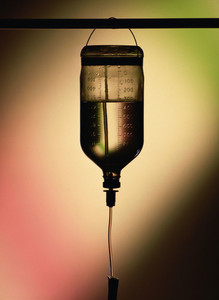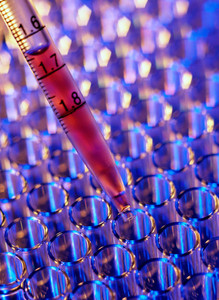An inspection by the UK Medicines and Healthcare Products Regulatory Agency (MHRA) has resulted in the ban of several drugs produced by a Pfizer manufacturing site in India.
The MHRA statement was released following inspections of the manufacturing site in Chennai in the east of India, acquired as part of Pfizer’s US$17 billion purchase of generic injectables producer Hospira. Hospira was recently part of a lawsuit over its infliximab biosimilar to treat autoimmune conditions [1], but the Chennai site mainly produces antibiotics.
The inspection was conducted by officials from four different regulators: the UK’s MHRA, the US Food and Drug Administration (FDA), Australia’s Therapeutic Goods Administration (TGA), and Health Canada. Joint inspections like this are rare – facilities are usually inspected by the same authority year on year – but can be beneficial to build confidence in regulatory systems across the world and enable information sharing between regulators with common goals.
The inspectors reported critical findings that called into question the sterility of products made at the site, including aseptic processes that did not sufficiently reduce the risk of microbial contamination. The inspection also revealed an environmental monitoring programme that failed to monitor a number of areas of critical risk, as well as poorly designed sterilization activities. According to the MHRA, the deficiencies were due to a lack of scientific knowledge.
The statement calls for the withdrawal of the site’s good manufacturing practice (GMP) certificate and prevents sterile products made at the plant from being supplied anywhere in the EU, excluding critical medicines and solid dosage products, such as tablets and capsules.
EU Member States should evaluate if the products supplied by this manufacturing site are critical for their markets by contacting the European Medicines Agency ([EMA], or their relevant national authority), and implement measures to ensure supplies are continued where necessary. In cases where production is continued for critical products, a documented risk assessment is essential.
Pfizer, which chose to suspend operations at the site in early August 2016, has responded to the findings and says it is working to address the problems. A recent company statement said that patient safety was of ‘utmost importance’.
This is not the first problem faced by the Hospira manufacturing site, which received a warning letter from FDA in May 2013 describing significant violations of GMP regulations, including surfaces not being sanitized prior to use and a lack of aseptic manufacturing interventions to protect drugs from contamination.
Related articles
EMA halts sales of unreliable generics
EMA reports ‘critical deficiencies’ in Chinese API producer Jinan Jinda
Reference
1. GaBI Online - Generics and Biosimilars Initiative. Janssen Biotech files lawsuits for infringement of cell culture media patent [www.gabionline.net]. Mol, Belgium: Pro Pharma Communications International; [cited 2016 Sep 16]. Available from: www.gabionline.net/Biosimilars/News/Janssen-Biotech-files-lawsuits-for-infringement-of-cell-culture-media-patent
Permission granted to reproduce for personal and non-commercial use only. All other reproduction, copy or reprinting of all or part of any ‘Content’ found on this website is strictly prohibited without the prior consent of the publisher. Contact the publisher to obtain permission before redistributing.
Copyright – Unless otherwise stated all contents of this website are © 2016 Pro Pharma Communications International. All Rights Reserved.








 0
0











Post your comment